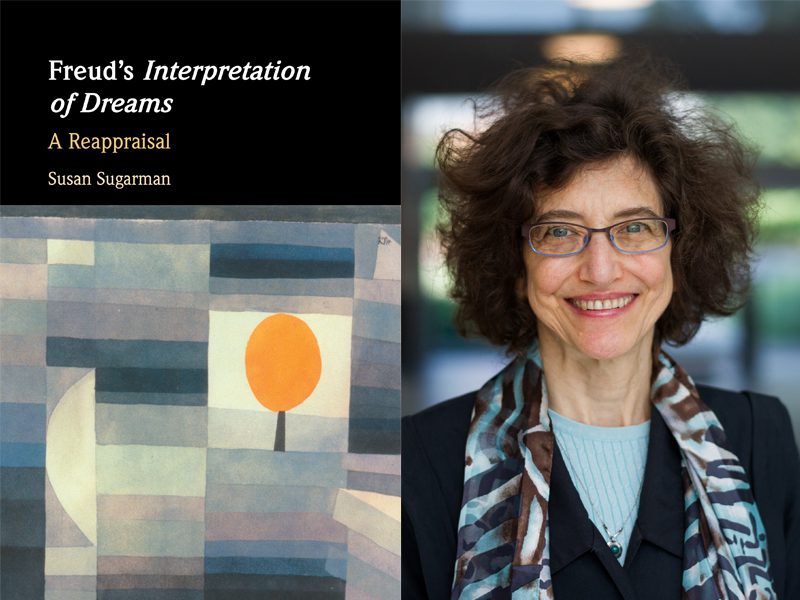Susan Sugarman is Professor of Psychology. She teaches the interdisciplinary course, “Foundations of Psychological Thought,” which is cross-listed in the Program in Humanistic Studies. Her book “Freud’s Interpretation of dreams: A reappraisal” was published in December 2022 by Cambridge University Press.
How did you get the idea for this project?
The English Department at Oxford invited me to deliver a paper to the university’s 19th Century Literature series, for which I chose “The interpretation of dreams” (1900) as my target text. Although I had covered Freud’s general theoretical works in earlier writings, I had treated “The interpretation of dreams,” which contains his first statement of his wider psychological theory, only in passing. I saw the speaking invitation as an opportunity to anchor my earlier analysis in Freud’s original roadmap. Not far into my work, I became concerned about a gap in Freud’s argument. Although it is a gap previously observed by other writers, it had not been evaluated in the context of Freud’s own argument or his wider corpus, the latter of which I find robust and persuasive. It was also not immediately clear what the implications of the gap, should I find it durable, would be for his larger program. I thus reoriented my effort around the investigation of the apparent flaw within a thorough analysis of Freud’s text and a comparison of it and his other work.
How has your project developed or changed throughout the research and writing process?
I wrote grudgingly at first, never having encountered in Freud’s writings a problem of the magnitude I saw in “The interpretation of dreams” and unsure of whether either the full apparatus he unfolds in the book or his other writings could not, in fact, be used to salvage the argument. Having become convinced, through my work, that the argument contains something on the order of a category mistake, with repercussions for how we think about both Freud and the dreaming and waking mind, I formed the book around that inquiry.
What questions for future investigation has the project sparked?
The upshot raises the possibility that Freud’s theory of the mind describes the machinery behind our conscious functioning, including in mental illness, and not our unconscious mentation.
Why should people read this book?
Freud remains a towering figure in both the history of ideas and contemporary scholarship in a wide range of disciplines; The interpretation of dreams is his best-known work. He is also controversial. Some, in both intellectual and popular circles, see him as anachronistic and absurd, others as a beacon of deep psychological truth—and he occupies every position in between. Criticism of him is often reductive and piecemeal. He is ubiquitously misread. If we are ever really to test the limits of Freud’s theory, the job would seem best done from within the theory, on a problem it was devised to handle. This project anchors itself in Freud’s apparatus, and “The interpretation of dreams” presents such a problem.
Learn more about other publications by Princeton University faculty in the humanities by exploring our Faculty Bookshelf.
















